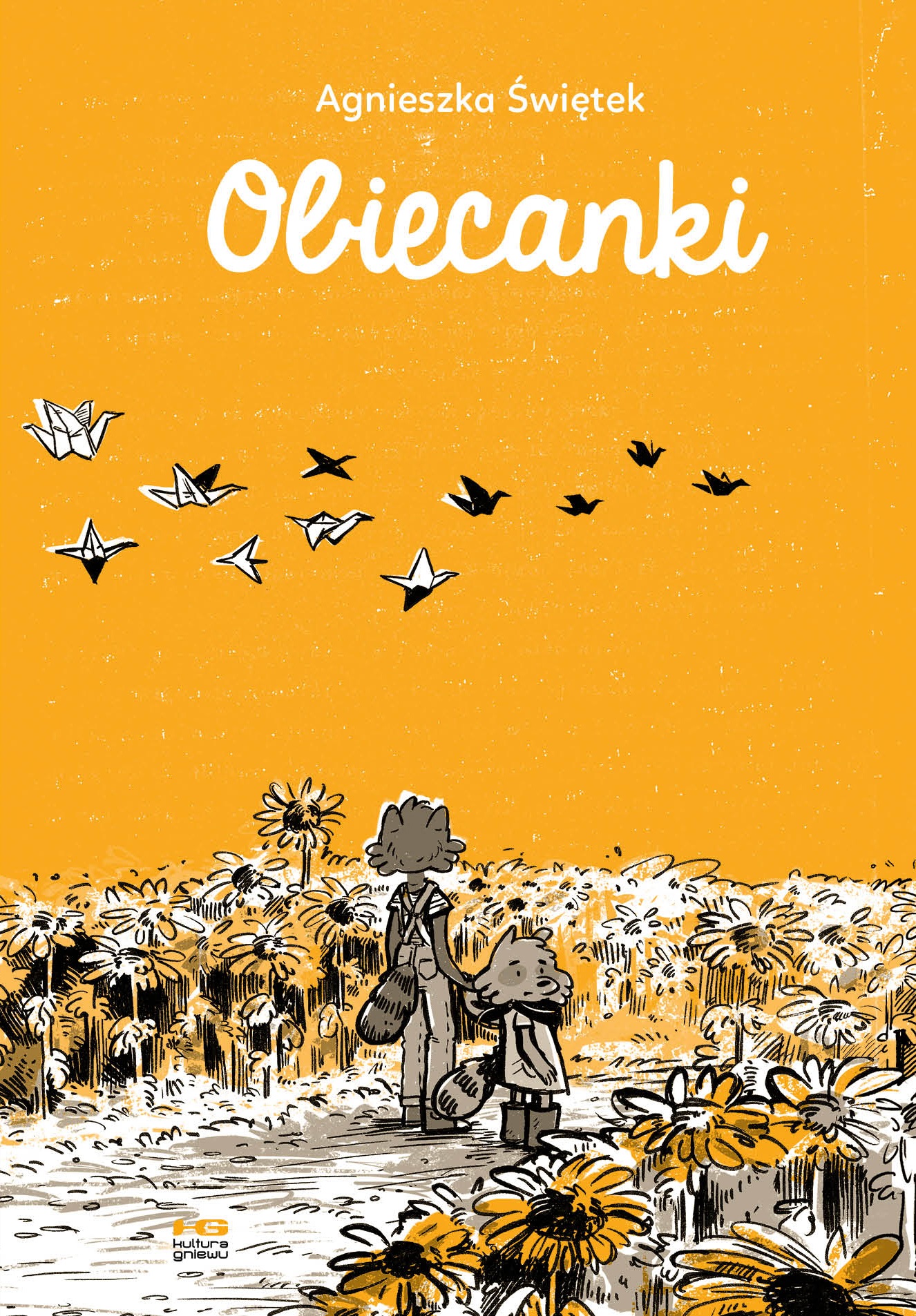One of Poland’s greatest stories told in this medium

One of Poland’s greatest stories told in this medium

Translation rights: Agnieszka Świętek, agaswietek1@gmail.com
Agnieszka Świętek’s debut graphic novel Promises swept Poland’s major comics awards for 2018. This is the debut of an already mature artist ready to take on serious subjects in her cartoonish, even childlike mode. In Promises, the reader witnesses two parents’ separation through the eyes of a child.
Świętek has chosen to anthropomorphise her characters, and the racoon family we encounter in her story inhabits a contemporary human setting. The emotional climaxes of Promises play out at school, where we meet an ensemble of visually and psychologically diverse personae – all of them animals. Against this backdrop, the spotlight falls on the eldest sister of the raccoon clan: a diligent and unusually sensitive student who is deeply affected by her parents’ divorce. We also meet her carefree younger sister who seems impervious to the family drama, and the girls’ mother, who struggles with depression. Despite his absence from their daily lives, the father remains a central figure to the tale.
Świętek renders this family portrait in black and white, but at crucial moments, the muted graphic tone is peppered with dashes of orange – a colour that summons the absent father. This simple formal device lends Promises a universal tone and invites the reader to experience the world through a child’s eyes.
This is a subtle perspective, and one eager to writhe free from emotional hardship. The older sister tries to piece back together her fragmented view of a world that will never be the same. But having woken to this new reality, she feels neither animosity nor aggression. Her priority is to cope with her family’s crisis by leaning on her own budding and increasingly mature sense of responsibility for her loved ones. It is precisely this attitude that makes Świętek’s graphic novel one of Poland’s greatest stories told in this medium.
Tomasz Miecznikowski, translated by Eliza Rose
Selected samples
She climbed her first peaks in a headscarf at a time when women in the mountains were treated by climbers as an additional backpack. It was with her that female alpinism began! She gained recognition in a spectacular way. The path was considered a crossing for madmen. Especially since the tragic accident in 1929, preserved … Continue reading “Halina”
First, Marysia, a student of an exclusive private school in Warsaw’s Mokotów district, dies under the wheels of a train. Her teacher, Elżbieta, tries to find out what really happened. She starts a private investigation only soon to perish herself. But her body disappears, and the only people who have seen anything are Gniewomir, a … Continue reading “Wound”
A young girl, Regina Wieczorek, was found dead on the beach. She was nineteen years old and had no enemies. Fortunately, the culprit was quickly found. At least, that’s what the militia think. Meanwhile, one day in November, Jan Kowalski appears at the police station. He claims to have killed not only Regina but also … Continue reading “Penance”
The year is 1922. A dangerous time of breakthrough. In the Eastern Borderlands of the Republic of Poland, Bolshevik gangs sow terror, leaving behind the corpses of men and disgraced women. A ruthless secret intelligence race takes place between the Lviv-Warsaw-Free City of Gdańsk line. Lviv investigator Edward Popielski, called Łysy (“Hairless”), receives an offer … Continue reading “A Girl with Four Fingers”
This question is closely related to the next one, namely: if any goal exists, does life lead us to that goal in an orderly manner? In other words, is everything that happens to us just a set of chaotic events that, combined together, do not form a whole? To understand how the concept of providence … Continue reading “Order and Love”
The work of Józef Łobodowski (1909-1988) – a remarkable poet, prose writer, and translator, who spent most of his life in exile – is slowly being revived in Poland. Łobodowski’s brilliant three- volume novel, composed on an epic scale, concerns the fate of families and orphans unmoored by the Bolshevik Revolution and civil war and … Continue reading “Ukrainian Trilogy: Thickets, The Settlement, The Way Back”























































































































































































































































































